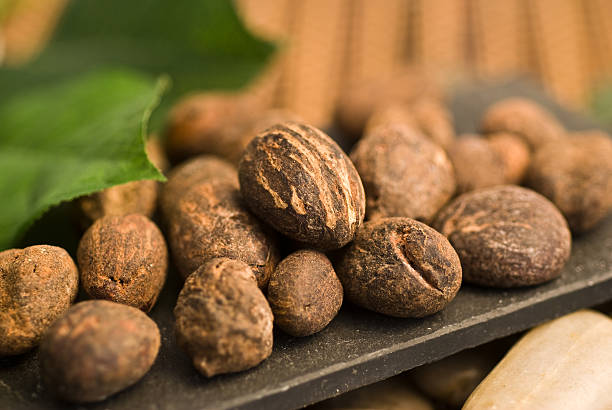President Bola Tinubu has announced a six-month suspension on the export of raw shea nuts, a move aimed at repositioning Nigeria in the $6.5 billion global shea market.
Tinubu in a statement made on his X (Twitter) account, on Wednesday, said “Nigeria’s shea is our green wealth. We produce nearly 40% of the world’s supply, yet capture less than 1% of its $6.5bn global market. That imbalance ends now.
I have approved a six-month suspension of raw shea exports, on the recommendation of the Presidential Food Systems Coordinating Unit, to secure supply for local processors, create jobs, and protect a value chain where 95% of pickers are women.
This is a win for our farmers, for our women, and for Nigeria.”
Speaking through Vice-President Kashim Shettima at a multi-stakeholder meeting in Abuja, Tinubu described shea as Nigeria’s “green wealth” that must be harnessed locally.
He explained that the ban will secure raw materials for domestic processors, create jobs, and empower women who dominate the shea picking sector, making up 95% of its workforce.
The directive, recommended by the Presidential Food Systems Coordinating Unit, is expected to generate around $300 million annually in the short term. Shettima added that by 2027, Nigeria aims for a tenfold increase in revenue, projecting the country as a leading global supplier of refined shea butter and oil.
The Vice-President emphasized that this is not an anti-trade measure, but a deliberate push toward industrialisation, rural transformation, and gender empowerment. According to him, the initiative protects the livelihoods and dignity of millions of Nigerian women while ensuring industries run at full capacity.
Minister of Agriculture and Food Security, Abubakar Kyari, confirmed the ban takes immediate effect and aligns with broader regional policies seen in Ghana and Burkina Faso. These countries have imposed similar restrictions to boost domestic shea processing and export revenues, positioning West Africa as a major hub in the shea value chain.
He said Nigeria’s approach is part of a wider agro-industrial strategy to retain more value locally rather than exporting raw produce. With the cosmetics shea butter market currently worth $600 million and projected to hit $850 million by 2027, the minister stressed the urgency of Nigeria seizing this opportunity.
Stanley Nkwocha, Senior Special Assistant to the Vice-President, said the Ministry of Finance has been directed to enforce the export suspension swiftly. He revealed that ongoing trade talks with Brazil will secure market access for Nigerian shea butter and oil within three months, expanding the country’s global trade footprint.
In March, WTO Director-General Ngozi Okonjo-Iweala noted that more than 16 million West African women rely on shea farming and processing, earning about $237 million in direct income annually.
With 85% of shea currently used as a cocoa butter equivalent in the chocolate industry and 15% in cosmetics, Nigeria’s ban represents a bold attempt to capture greater value in a rapidly growing global market.


























